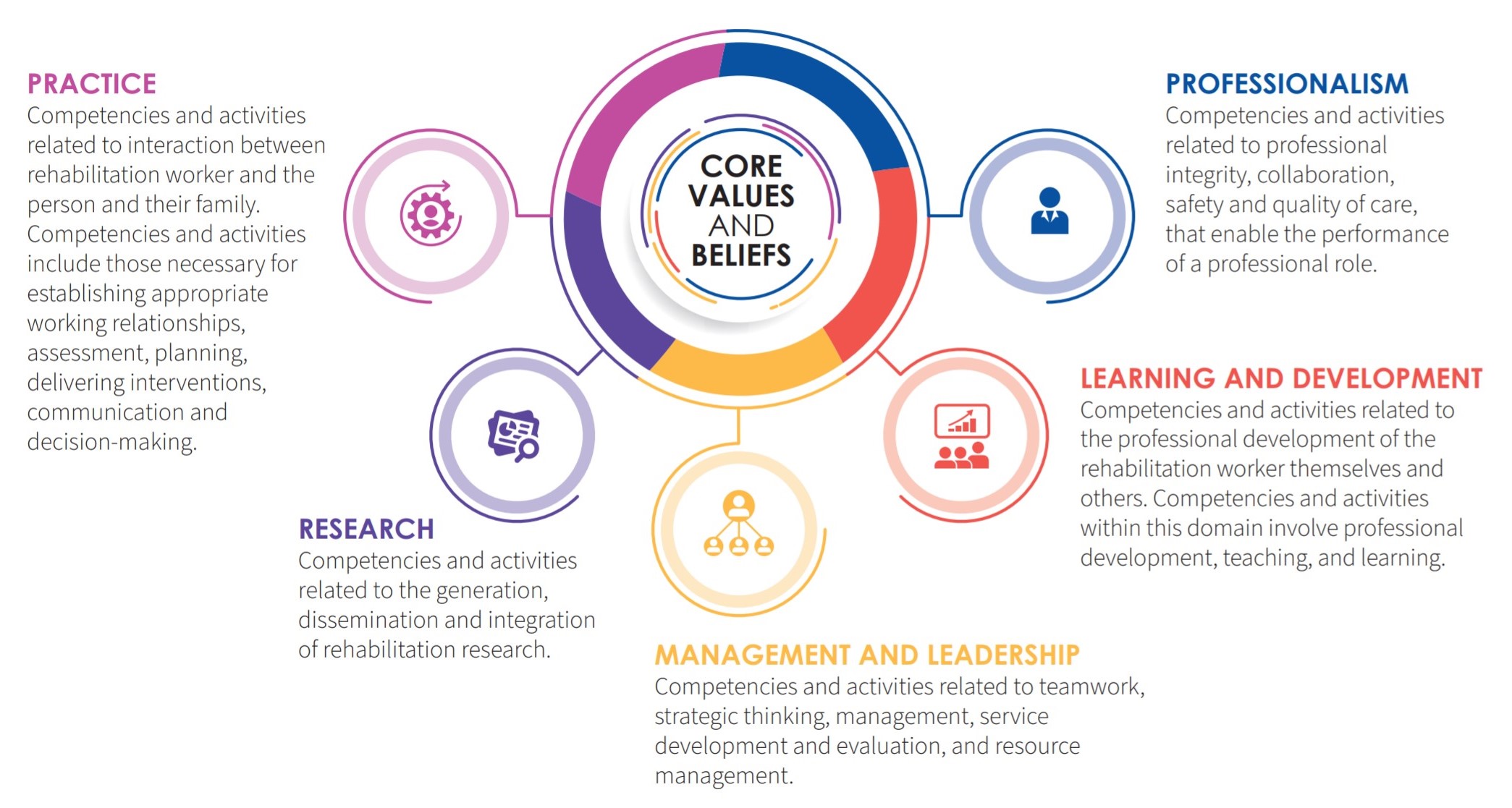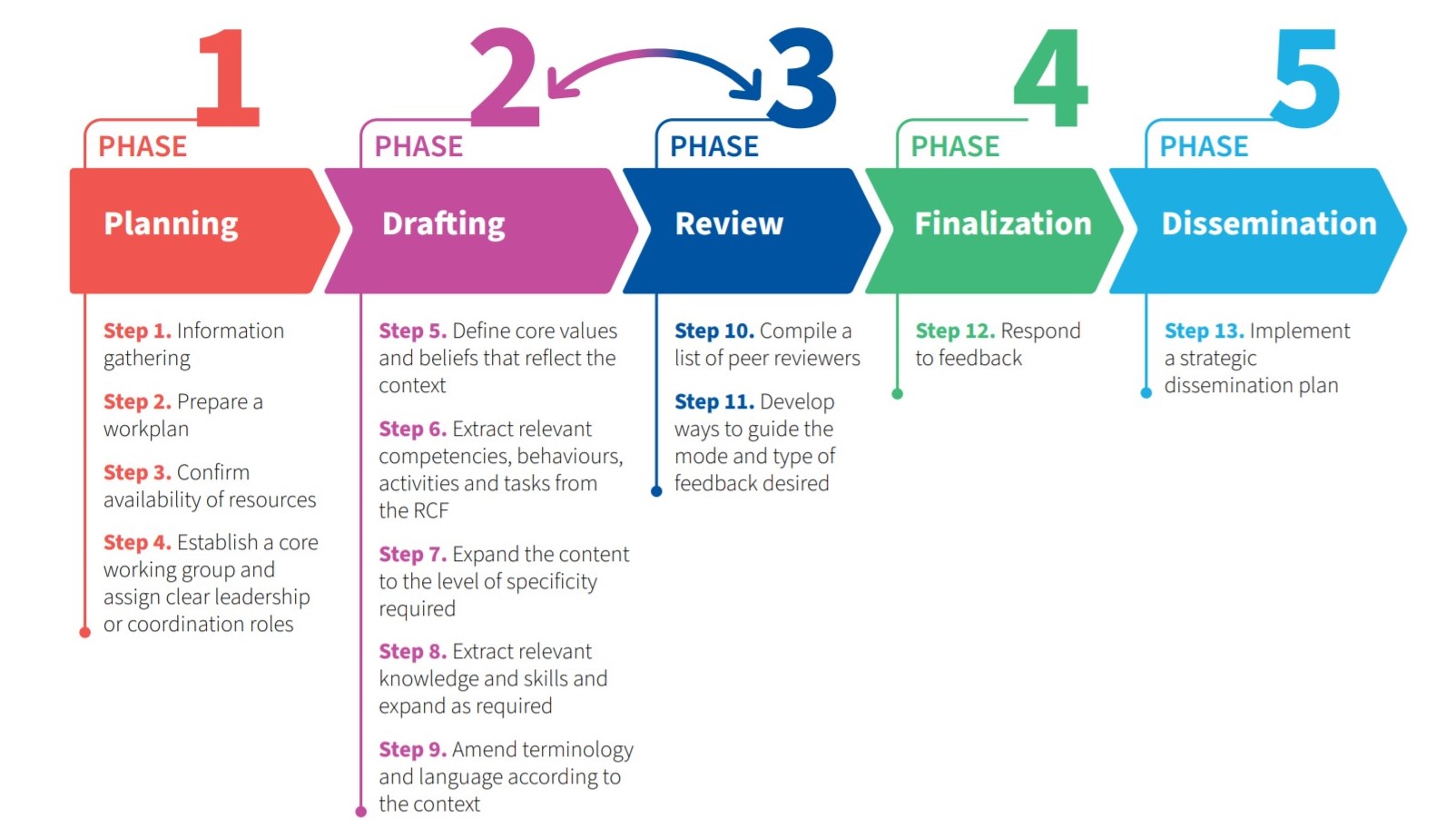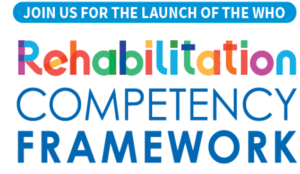With the new framework for rehabilitation competencies, new context-specific rehabilitation models will emerge, which will be supported by qualified rehabilitation specialists. Register now for the virtual kick-off event on February 26th to find out more.
Rehabilitation is an important health strategy to enable participation in education, work and society. but too often the lack of access to trained rehabilitation workers leaves the need unsatisfied.
As health systems advance towards universal health coverage and meet the growing challenges of the increased prevalence of NCDs, aging populations and the consequences of health emergencies, the importance of a strong rehabilitation workforce becomes more apparent than ever.
Across the world, the ability to develop and maintain a multidisciplinary rehabilitation practitioner who is able to effectively meet the needs of the population varies widely and is largely absent in many low and middle income situations.
As countries seek to increase the production of rehabilitation workers, the newly published Rehabilitation Skills Framework will be a key tool to ensure that they have the skills needed to provide quality care above those of the population required rehabilitation area are required .
The development of the framework was directed by the World Health Organization and developed in collaboration with an expert technical working group and a wide range of rehabilitation professionals from countries low, middle and high income.
What is the rehabilitation competence framework?
The rehabilitation competence framework is a model that communicates the expected or desired performance of rehabilitation professionals in different countries and settings in order to enable quality care and service delivery.
The RCF consists of five areas that revolve around core values and beliefs that are at the heart of the framework. This core influences the behavior of a rehab worker and their execution of tasks in all RCF domains.
The four basic values are; Compassion and empathy Sensitivity and respect for diversity Dignity & human rights and Self-determination .
The four core beliefs are that rehab should be person-centered collaborative for anyone who needs it, and that functioning is central Health . After all, a person is a human activity.
The five domains are:
Work out
professionalism
Learn and develop
Management and leadership
research
The domains collectively record how the rehabilitation workers behave in order to work effectively (competencies) and what they do (activities). Competencies are divided into behaviors; and activities in tasks. Each is described in four skill levels.
 Download the RCF framework
Download the RCF framework
How should the RCF be used?
The RCF should be adapted to a specific context. The World Health Organization has developed a methodological guide for adapting the RCF to specific contexts, e.g. B. for a certain profession, a certain specialization or a certain environment.
The RCF was designed to provide an organizational structure and language for the development of rehabilitation-rehabilitation competence frameworks that can be applied regardless of the intended target group or application. However, to achieve this, any framework should reflect local values and beliefs.
Once the RCF is adapted to a specific context, it can be used in various ways to support personnel development, for example:
Regulatory or Accreditation Bodies – to communicate standards expected from a profession.
Educational institutions – Creation and communication of course results
Rehabilitation services – in planning and personnel management
Ministries of Health – Assessment of workforce performance in the gap analysis
There is no agreed approach for this adaptation. However, it is important to apply best practices by taking a systematic approach to ensure a positive outcome. The WHO has produced a supplementary guide for developers of competence frameworks. The overall process is summarized in the following picture.
 A universal rehabilitation curriculum
A universal rehabilitation curriculum
As part of the USAID funded ReLAB-HS project led by Physiopedia, the RCF forms the basis for developing a framework for basic rehabilitation education that includes an international and professionally relevant toolset that saves time and money in a cost-effective manner Development of context-specific curricula.
Based on research and consensus activities, the framework will include a standard rehabilitation curriculum that emphasizes a customer-centric, evidence-based approach with an emphasis on addressing challenges in resource-poor, conflicted, and culturally diverse environments. This curriculum draws on a wide range of existing curricula, the RCF and other WHO resources, such as: B. The package of rehabilitation and support product training, and will include the results of a global needs assessment survey in collaboration with stakeholders.
The framework will also contain resources to help rehabilitation professionals develop and deliver their own curriculum, e.g. B. Sample curricula, support for trainer training, digital literacy tools, and guidelines for implementing blended learning. It should be easily adopted and adapted to local needs and contain innovative digital solutions to facilitate implementation.
Start event
 On February 26th the WHO organized a virtual launch event for the framework. The event will bring together some of the world's leading health workers experts along with members of the international team that helped develop the RCF to create a rich agenda.
On February 26th the WHO organized a virtual launch event for the framework. The event will bring together some of the world's leading health workers experts along with members of the international team that helped develop the RCF to create a rich agenda.
Participants will gain an understanding of the role and potential of the RCF in addressing the challenges faced by the rehabilitation workforce and how it can be used in real-world scenarios to bring us closer to the vision of rehabilitation 2030: That everyone in need of rehabilitation has access to timely, high quality services.
Register for the virtual launch event